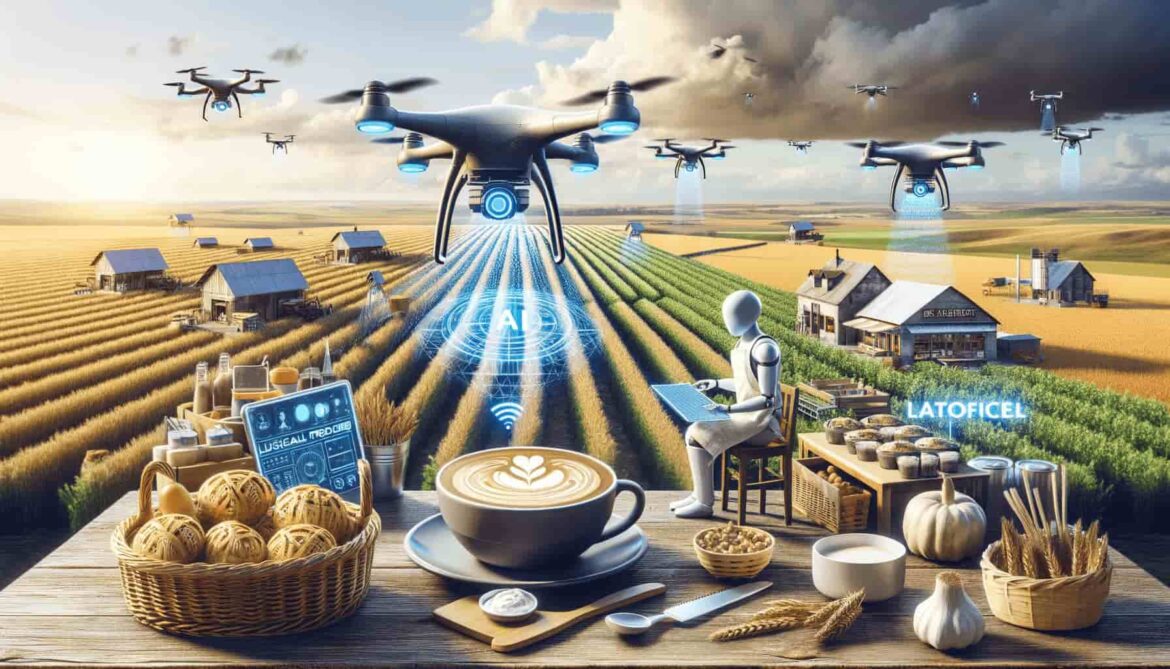Artificial intelligence (AI) is reshaping the contours of many industries, and local agriculture is no exception. The advent of AI among local producers opens the door to a profound transformation of agricultural practices, from crop management to product marketing. We’ll explore how the integration of artificial intelligence into local farms constitutes both a technological and ethical revolution, with its opportunities and challenges.
The emergence of artificial intelligence in local agriculture
Past, present and future of AI among local producers
Historically, agriculture has always evolved with technological innovation. Artificial intelligence is the latest, but arguably carries the most significant potential for change. While the first AI applications were reserved for large farms, due to their cost and complexity, we are now witnessing a democratization of these technologies. More accessible solutions are emerging, enabling small-scale producers to benefit from the advantages of AI for more precise, high-performance agriculture.
The great AI revolutions in local agriculture: Case studies
Several case studies illustrate the impact of AI on local agriculture. From drones to connected sensors to predictive analytics systems, there’s no shortage of examples. We see growers using AI for detailed analysis of the health of their crops, enabling targeted intervention against pests or disease. Others use the data collected to optimize the use of water and fertilizers, reducing the costs and environmental impact of their practices.
The concrete benefits of AI for local producers
Yield optimization and sustainable resource management
Integrating AI boosts yields while managing resources more sustainably. Intelligent systems can predict crop water and nutrient requirements with great accuracy, reducing waste. What’s more, by analyzing data in real time, AI helps to anticipate and prevent possible drops in yield due to climatic or biological hazards.
AI and the supply chain: Towards better traceability
Artificial intelligence also promotes better traceability in the supply chain. From crop tracking to sales, AI technologies enable products to be precisely tracked, offering consumers an additional guarantee of quality. This improved tracking can also strengthen the bonds of trust between local producers and their customers.
The challenges of integrating artificial intelligence into agriculture
Technical and financial constraints for small-scale producers
The adoption of AI by small farms is often hampered by technical and financial constraints. The initial investment can be substantial, and digital technology skills are not always present among small farmers. It is therefore crucial to develop affordable solutions and support producers in the digital transition.
Social and ethical acceptance of AI in the local environment
Another challenge is to ensure that the use of AI in local agriculture is accepted by both producers and consumers. Ethical issues and fears about automation and job loss need to be considered and addressed openly. Education and transparency are essential to facilitate this social acceptance.
Recent AI innovations for local producers
Cutting-edge technologies for small-scale operations
In the face of increasing demand for affordable AI solutions, several innovations have emerged. These include mobile crop diagnostics apps, online farm management tools and autonomous field monitoring devices tailored to small acreages.
Study of new AI solutions on the local agricultural market
Studies of recently introduced AI solutions show their effectiveness both in terms of increasing productivity and preserving the local ecosystem. These range from crop recommendation systems based on machine learning, to weeding robots that reduce the need for chemical herbicides.
Future Visions: Artificial intelligence and the sustainability of local producers
Forecasting the evolution of AI in local agriculture
The evolution of AI suggests ever greater integration into local farming methods. The future could see increasingly intelligent farms, with systems capable of autonomously managing numerous operations, from planting to harvesting, while adapting to the particularities of each small-scale production.
Environmental and social impacts of AI adoption
The adoption of AI by local producers has potentially positive environmental and social implications. Better control and efficiency can contribute to sustainability by minimizing the impact on ecosystems, while increased transparency and traceability can strengthen social cohesion around local food issues.

